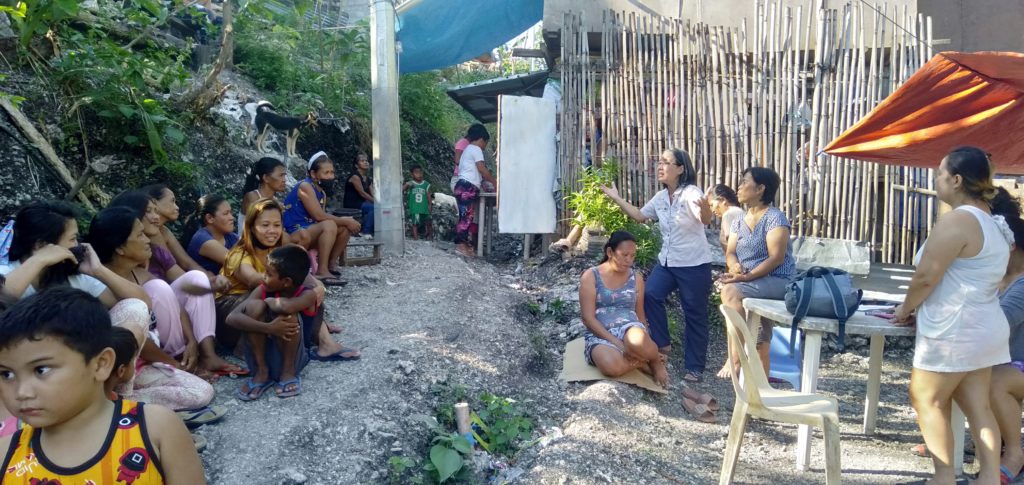The Visayas Primary Healthcare Services, Inc. is on its sixth month in the implementation of its project, “ Building community-based programs (CBHPs) in Northern Cebu, Philippines” in Barangays Dalingding Norte and Paypay in Daanbantayan and Tindog in Medellin, which were affected by Typhoon Yolanda in November 2013.
With the support of the LandsAid, a German humanitarian aid organization, the 18- months project that started last May aims to provide health skills trainings and services to community health workers and residents in
The project works closely with the people’s organizations in the communities, namely, the Nakahiusang Kababayen-an sa Sitio Mayjo (United Women in Sitio Mayjo, Paypay), Nagkahiusang Lumolupyo sa Hacienda Gomez (United Residents in Hacienda Gomez, Sitio Gomez, Dalingding Norte), and the Nagkahiusang Lumolopyo sa Sitio Manan-aw (United Residents in Sitio Manan-aw) in Tindog, Medellin.
The first level of basic health skills training for 37 community health workers of the three people’s organizations was conducted in August and September.
The second level was then conducted on October for the three communities. The topics consisted of the following, namely: (1) simplified anatomy and physiology of the human body, (2) simplified history taking and physical examination, and (3) Integrated Management of Childhood Illnesses (IMCI) with emphasis on control of acute respiratory infections and diarrheal diseases, (4) nutrition and malnutrition, and (5) immunization.
The topics were at first considered difficult for the CHWs who were mostly of the elementary level so that the resource persons who have been giving such trainings in the past explained to them in simple lay man’s terms in the context of the community’s common health problems and with proper demonstrations and practicum during the workshops. A total of 37 community health workers from the three communities finished levels one and two. There were 14 CHWS from Dalingding Norte, 11 CHWS from Tindog, and 12 CHWs from Paypay.
Home visitations and community clinics were done during which the CHWs together with the project staff attended to residents who had medical problems. They used locally available herbal plants, acupressure, and cupping therapy for complaints of colds, cough, fever, stomach ache, skin problems, muscle aches and body fatigue. They used water in the form of hot compress, cold compress, and sponge bath for fever, and advised patients to drink lots of water during diarrhea and respiratory tract infections and to do steam inhalation for stuffy nose.
The CHWs also were able to identify if a child has pneumonia by counting the respiratory rate and see if there is difficult breathing and to identify if a child has dehydration from diarrhea. They were able to do simple remedies for a sick child who needed only home treatment.
They also went around to their neighbours and other residents to take blood pressure and the weights of children. The CHWs said that many of the residents were very happy to have their blood pressures checked in their own homes since they seldom had them taken. Those who were hypertensive were referred to the rural health unit.
Health educations for the residents were also held in the three areas. The residents were asked to gather around during their free time by the CHWs and discussions on common health problems were held. The topics included control of acute respiratory tract infections and diarrheal diseases, control of hypertension and proper nutrition among children.



